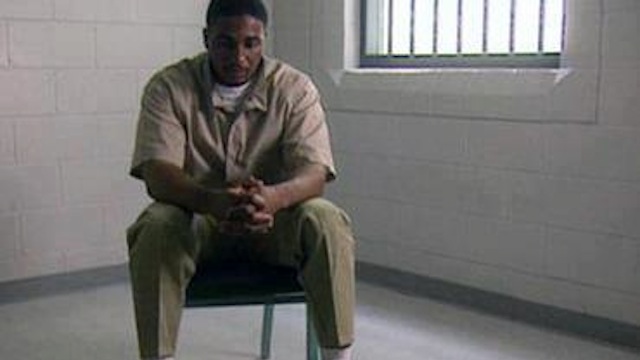
(Facebook)
President Barack Obama has commuted the sentence of 8 prisoners serving time for prolonged crack cocaine charges. All of these 8 cases are people who, if sentenced today, would have been given much less time due to the loosening of first-time nonviolent crack cocaine charges. This move shows an effort on the part of the Obama administration to distance themselves from the racial bias that motivated legislators to make crack cocaine laws the most heavily enforced and prosecuted in the war on drugs during the 1980s and 90s.
One of those who are ordered to be released within 120 days is Clarence Aaron, who was jailed for life without parole in 1993 for setting up crack cocaine deals between two kingpins, reports the San Francisco Chronicle’s Debra Saunders.
Here is the document freeing Aaron, which was sent to Saunders by Aaron’s lawyer, Margaret Love:
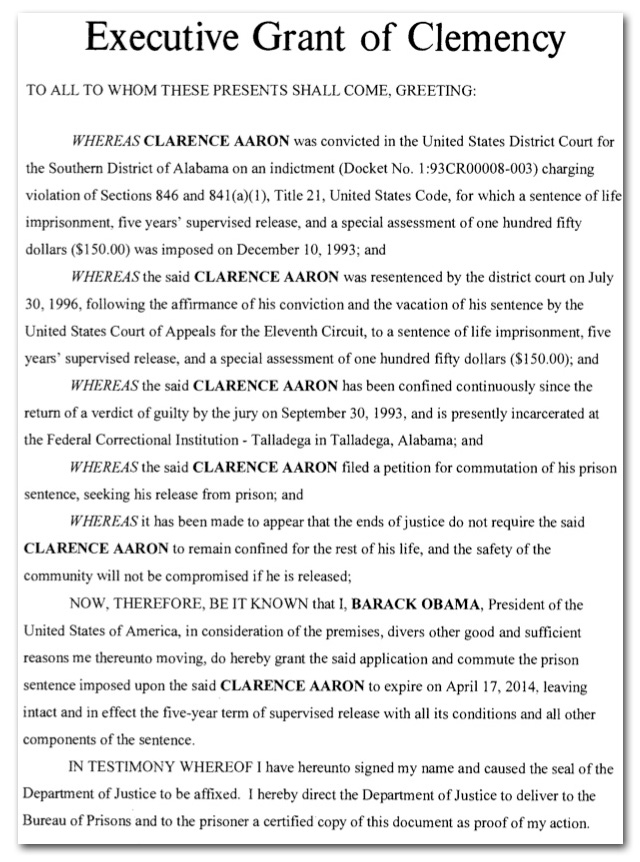
Here’s what you need to know. Stay tuned for more on this breaking story.
1. Aaron Made just $1,500 for Making an Introduction
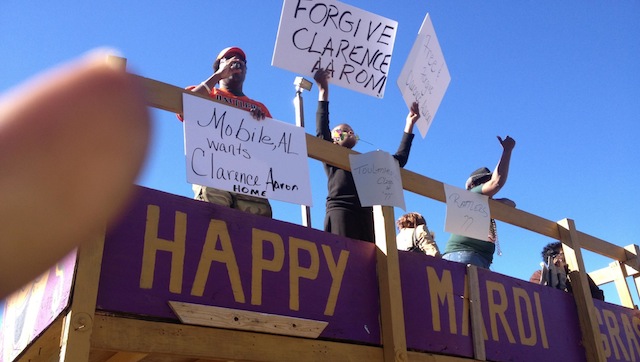
(Facebook)
In 1993, Aaron introduced two drug dealers. He was sentenced to three life sentences. The two kingpins he introduced received lighter sentences than he did. Aaron was a football star at Southern University in Baton Rouge, Louisiana, before his arrest.
In an interview with PBS, Aaron explains the situation of his case:
So me going back and forth from college home, I used to talk about these guys. They’d had nice cars and thing like that, and I thought that they might be dealing some type of drugs or something like that. So one particular day, my friend Robert called me at Louisiana to ask me, could I introduce the two parties? I said, “Yes.” He say, “Well, if you can introduce us, I’ll get you fifteen hundred dollars, if you can introduce us we can come to some type of agreement.” I said, “Oh, I have no problem with that.” So I got in touch with Gary and told Gary that my friends out of Alabama wanted to meet him. He said okay.
2. Aaron Had Previously Appealed for a Commutation

Aaron’s previous request to George W. Bush was denied in the early 2000s. Since his first denial, activists and lawyers have been championing his cause and requesting a commutation of his sentence. Below you can read George W. Bush’s pardon lawyer advising him in 2004 not to commute Aaron’s sentence:
3. This is Obama’s Second Time Giving Commutations
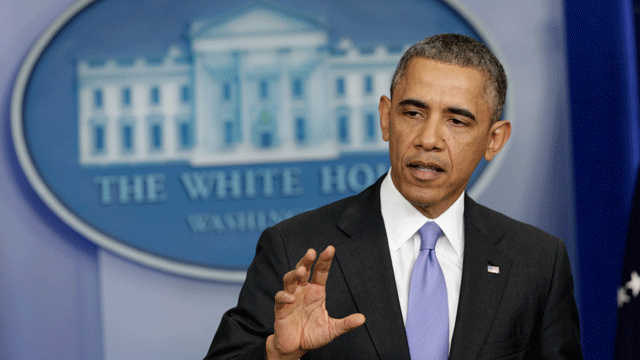
(Getty)
The commutation of these 8 people are the first done since 2011. Obama’s first was Eugenia Jennings in 2011. She was convicted in 2001 and sentenced to 22 years for selling crack to a police informant. Because Jennings was a first time non-violent offender, she was also consider a victim of what Obama has called an “unfair system.”
4. Drug Laws Have Been Changed Since These 8 Were Convicted
One year after Aaron was sentenced, Congress passed a law that would exempt first-time offenders in nonviolent drug cases from mandatory minimum sentences. The sentencing laws that were passed in 1994 and in 2011 greatly reduce the affect of the laws which, according to the New York Times, oversaw a “100-to-1 sentencing disparity between crack and powder cocaine offenses.”
In his comments made about the commutation, Obama said:
If they had been sentenced under the current law, many of them would have already served their time and paid their debt to society. Instead, because of a disparity in the law that is now recognized as unjust, they remain in prison, separated from their families and their communities, at a cost of millions of taxpayer dollars each year.
5. Nonviolent Dug Offenders Could Account For 25 Percent of Inmates
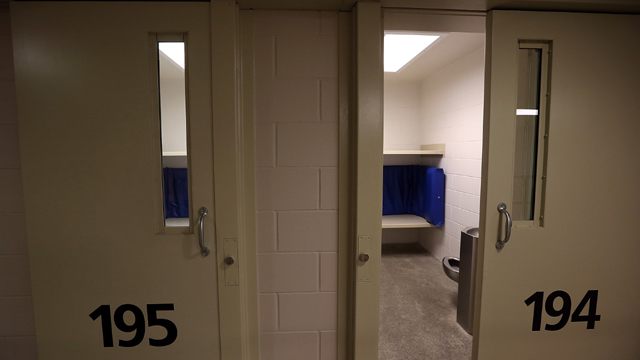
(Getty)
According to the National Review, the amount of nonviolent drug offenders in prison rose from less than 10 percent in 1980 to around 25 percent by 2011.
